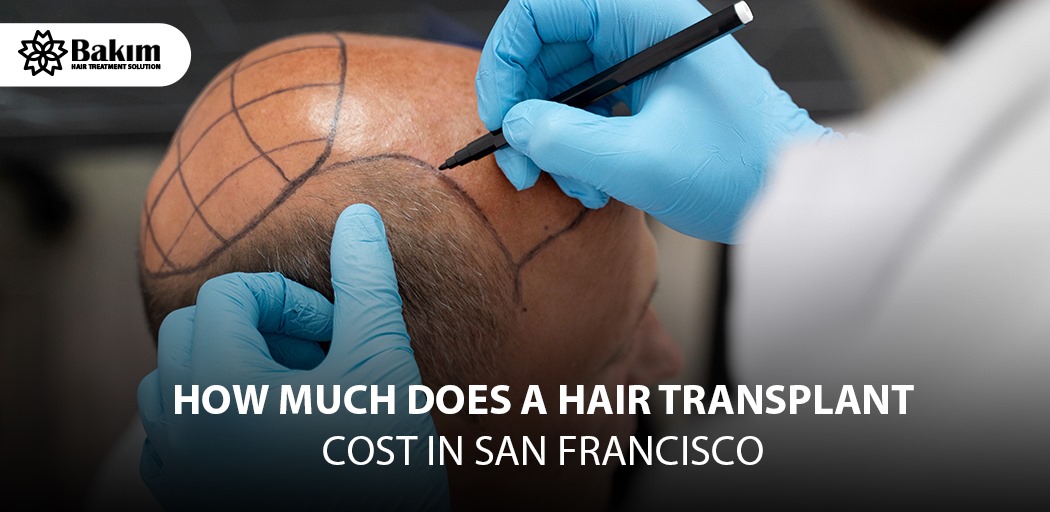Hair transplant procedures have become an increasingly popular solution for individuals experiencing hair loss. San Francisco, known for its advanced medical facilities and expert practitioners, offers a range of hair transplant options. Understanding the costs involved is crucial for anyone considering this procedure. This article will explore the various factors influencing hair transplant costs in San Francisco, average prices for different procedures, additional costs to consider, insurance and financing options, and tips for choosing the right clinic. Additionally, it will provide guidance on preparing for the procedure and post-transplant care.
Key Takeaways
- The cost of hair transplants in San Francisco is influenced by factors such as clinic reputation, type of procedure, and the extent of hair loss.
- Average costs for hair transplant procedures vary, with FUE, FUT, and robotic hair transplantation being the most common methods.
- Additional costs to consider include consultation fees, post-operative care, medications, and follow-up sessions.
- Insurance may not cover hair transplants, but many clinics offer financing plans and various payment options.
- Choosing the right clinic involves researching credentials, reading patient reviews, and consulting with multiple clinics.
Factors Influencing Hair Transplant Costs in San Francisco
In San Francisco, the cost of a hair transplant can vary based on several key factors. These factors include the reputation and expertise of the clinic where the procedure is performed, the type of hair transplant procedure chosen, and the extent of hair loss requiring treatment. Additionally, the number of grafts needed for the transplant can also impact the overall cost. Patients should consider these factors carefully when planning for a hair transplant procedure in San Francisco.
Average Cost of Hair Transplant Procedures in San Francisco
When considering how much does a hair transplant cost in San Francisco, it’s essential to understand the different procedures available and their respective price ranges. The cost can vary significantly based on the method chosen and the clinic’s reputation.
FUE (Follicular Unit Extraction)
FUE is a popular hair transplant technique where individual hair follicles are extracted and implanted. This method typically ranges from $6,000 to $15,000 in San Francisco. The precision and minimal scarring associated with FUE often make it a preferred choice.
FUT (Follicular Unit Transplantation)
FUT involves removing a strip of scalp and dissecting it into individual grafts. This procedure is generally less expensive than FUE, with costs ranging from $5,000 to $12,000. However, it may result in a linear scar, which some patients find less desirable.
Robotic Hair Transplantation
Robotic hair transplantation utilizes advanced technology to assist in the extraction and implantation of hair follicles. This cutting-edge method can cost between $8,000 and $20,000, reflecting the precision and efficiency of the robotic system.
When asking how much does a hair transplant cost in 2024, it’s crucial to consider the advancements in technology and techniques that may influence prices.
Additional Costs to Consider
Consultation Fees
Before undergoing a hair transplant, you will likely need to pay for an initial consultation. This fee can vary depending on the clinic’s reputation and expertise. Some clinics may offer free consultations, while others might charge a significant amount.
Post-Operative Care and Medications
After the procedure, there are additional costs for post-operative care and medications. These can include antibiotics, pain relievers, and special shampoos or conditioners to aid in the healing process. It’s essential to factor in these expenses when budgeting for your hair transplant.
Follow-Up Sessions
Follow-up sessions are crucial for monitoring the progress of your hair transplant and ensuring optimal results. These sessions may involve additional costs, especially if any touch-up procedures are needed. Typically, the FUE hair transplant cost will be more than the FUT cost for follow-up treatments.
It’s important to consider all these additional costs to get a comprehensive understanding of the total investment required for a hair transplant in San Francisco.
Insurance and Financing Options
Insurance Coverage for Hair Transplants
Hair transplants are generally considered cosmetic procedures, which means most insurance plans do not cover them. However, there are exceptions if the hair loss is due to a medical condition or injury. It’s crucial to check with your insurance provider to understand your specific coverage.
Financing Plans Offered by Clinics
Many clinics offer financing plans to make hair transplants more affordable. These plans can include monthly payment options, low-interest rates, or even interest-free periods. It’s advisable to discuss these options during your consultation to find a plan that suits your budget.
Payment Options and Discounts
Clinics often provide various payment methods, including credit cards, bank transfers, and sometimes even cryptocurrency. Additionally, some clinics offer discounts for upfront payments or package deals. Always inquire about any available discounts or special offers during your initial consultation.
When considering a hair transplant, it’s essential to explore all your financial options to make an informed decision.
Choosing the Right Clinic for Your Hair Transplant
Researching Clinic Credentials
When selecting a clinic for your hair transplant, it’s crucial to verify the credentials and qualifications of the medical team. Ensure the clinic is accredited and the surgeons are board-certified in hair restoration procedures.
Reading Patient Reviews and Testimonials
Patient reviews and testimonials can provide valuable insights into the clinic’s reputation and the quality of their services. Look for feedback on the clinic’s success rates, patient care, and overall satisfaction.
Consulting with Multiple Clinics
Before making a decision, consult with multiple clinics to compare their offerings. This will help you understand the range of available hair loss solutions and choose the one that best fits your needs. During consultations, ask about the clinic’s experience with different hair transplant techniques and their approach to post-operative care.
Taking the time to thoroughly research and consult with various clinics can significantly impact the success of your hair transplant procedure.
Preparing for Your Hair Transplant Procedure
Pre-Operative Instructions
Before undergoing a hair transplant, it’s crucial to follow the pre-operative instructions provided by your clinic. These guidelines are designed to ensure the best possible outcome and minimize any potential complications. Adhering to these instructions can significantly impact the success of your procedure.
Lifestyle Adjustments
In the weeks leading up to your hair transplant, you may need to make certain lifestyle adjustments. This could include avoiding specific medications, refraining from smoking, and limiting alcohol consumption. These changes help prepare your body for the surgery and promote optimal healing.
What to Expect on the Day of Surgery
On the day of your hair transplant, you should arrive at the clinic well-rested and on time. The procedure typically involves several hours, so be prepared for a lengthy process. The medical team will guide you through each step, ensuring you are comfortable and informed throughout the day.
Being well-prepared for your hair transplant can make a significant difference in your overall experience and results.
Post-Transplant Care and Recovery
Immediate Post-Operative Care
After your hair transplant, it’s crucial to follow the post-operative care instructions provided by your clinic. This typically includes keeping the scalp clean, avoiding direct sunlight, and refraining from strenuous activities. You may also be prescribed medications to manage pain and prevent infection.
Long-Term Hair Care Tips
Maintaining the health of your new hair is essential for long-term success. Use gentle shampoos and avoid harsh chemicals. Regularly consult with your specialist to monitor progress and address any concerns. Consider exploring non-surgical hair restoration methods in San Francisco, CA, such as thrombocyte-enriched plasma therapy and sub-thermal radiation therapy for enduring results.
Recognizing and Addressing Complications
It’s important to be aware of potential complications, such as infection or graft rejection. If you notice any unusual symptoms, contact your clinic immediately. Early intervention can prevent more serious issues and ensure a smooth recovery.
Proper post-transplant care is vital for achieving the best possible results and maintaining the health of your new hair.
Post-transplant care and recovery are crucial steps in ensuring the success of your transplant. Our comprehensive guide provides you with essential tips and resources to help you navigate this journey. For more detailed information and personalized advice, visit our website and explore our extensive resources.
Conclusion
In conclusion, the cost of a hair transplant in San Francisco can vary significantly based on a variety of factors including the clinic’s reputation, the surgeon’s expertise, the technique used, and the extent of hair loss. While it is generally more expensive compared to other regions, the high standards of medical care and advanced technology available in San Francisco make it a worthwhile investment for many. Prospective patients should conduct thorough research, consult with multiple clinics, and consider both the financial and emotional aspects before making a decision. Ultimately, a hair transplant can offer a permanent solution to hair loss, boosting confidence and improving quality of life.
Frequently Asked Questions
What is the average cost of a hair transplant in San Francisco?
The average cost of a hair transplant in San Francisco can range from $4,000 to $15,000 depending on various factors such as the type of procedure, the extent of hair loss, and the clinic’s reputation.
Does insurance cover the cost of hair transplants?
Generally, hair transplants are considered cosmetic procedures and are not covered by insurance. However, it’s best to check with your insurance provider for specific details.
What are the different types of hair transplant procedures available?
The main types of hair transplant procedures include FUE (Follicular Unit Extraction), FUT (Follicular Unit Transplantation), and robotic hair transplantation.
How many grafts will I need for my hair transplant?
The number of grafts needed varies based on the extent of hair loss and the desired density. A consultation with a specialist can provide a more accurate estimate.
What should I expect during the recovery period?
Recovery typically involves some swelling, redness, and minor discomfort. Most patients can return to normal activities within a week, but full recovery and hair growth can take several months.
Are there financing options available for hair transplants?
Many clinics offer financing plans to help manage the cost of hair transplants. It’s advisable to discuss payment options and any available discounts during your consultation.




